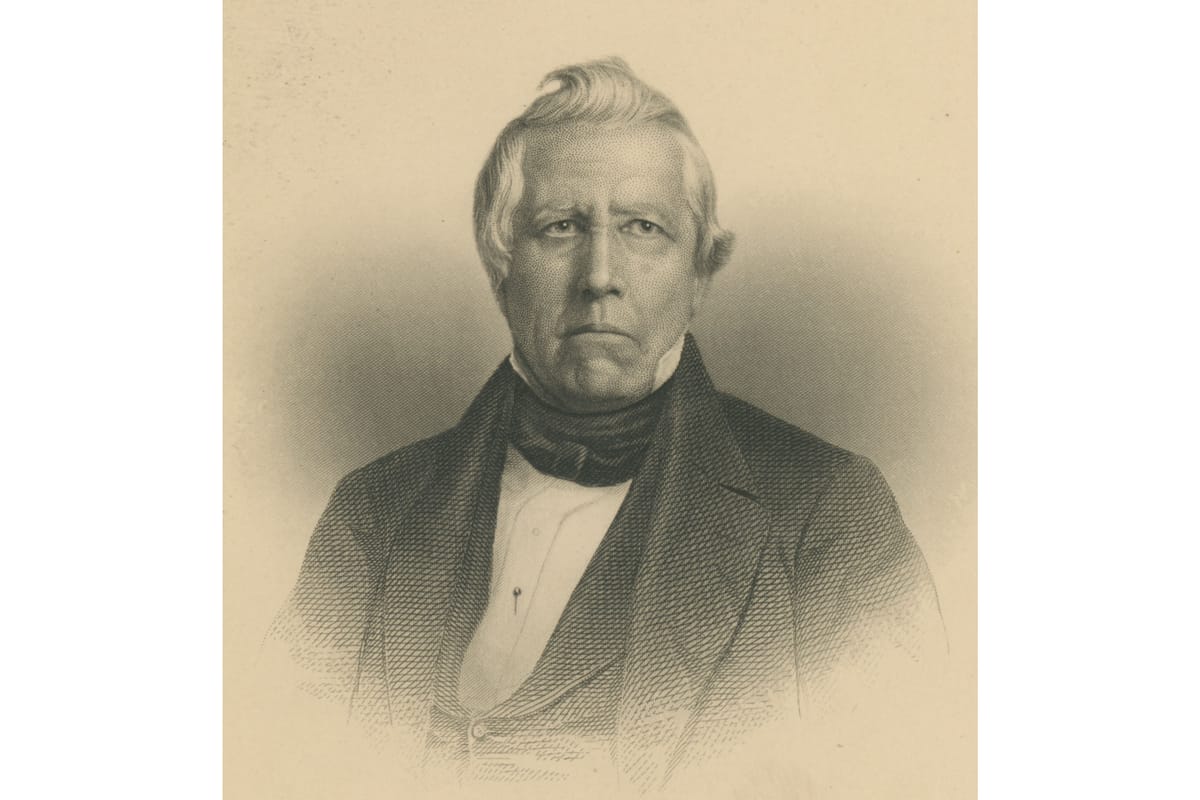Local Legends: The pioneer polymath
James McBride's career in Butler County spanned a number of industries, from hotel owner and entrepreneur to Miami University Trustee and even state representative.

James McBride was one of the most important individuals in early Butler County and played an important role in the establishment of Miami University.
Scots-Irish blood flowed through James McBride’s veins. His grandfather, James McBride, left the Scottish Highlands for America shortly after the defeat of the Jacobites in 1746, settling in Pennsylvania.
McBride’s father, also James McBride, a native of Pennsylvania, served as a Ranger in the Continental Army during the American Revolutionary War. Stationed on the Kentucky frontier, McBride’s father developed an affection for the Bluegrass State and purchased property near present Lexington, Kentucky, returning there multiple times in both war and peace throughout the 1780s.
Back in Pennsylvania, his father wed Margaret (McRoberts) McBride and McBride’s birth followed on Nov. 2, 1788. Less than a year later, McBride’s father was killed by Native Americans while on a surveying expedition in Kentucky.
McBride lived out his childhood and teenage years on the farm of his maternal grandfather, James McRoberts, in the vicinity of Conococheague Creek in Franklin County, Pennsylvania, the same place where he was born.
He left the farm in 1807 and traveled west, heading to Pittsburgh, then Losantisville, present Cincinnati, before arriving in Hamilton in December of that year. McBride had limited formal education, but that did not stop him from prolifically reading, writing and otherwise self-educating.
Hamilton, in that era, was nothing more than a collection of log houses and former fort buildings populated by a small number of pioneer families. McBride would soon be deeply involved with the work that would transform the town.
McBride took some time to adjust to life on the frontier, feeling a touch of homesickness. He wrote in 1808, “Methinks could I be there once more and see those haunts of joy where I once sported as a boy, I could again write poetry and make those western woods resound with song … the beautiful meanders of Conococheague intrude upon my mind.”
He wasn’t lonely for much longer, marrying Hannah (Lytle) McBride in Hamilton on Sept. 1, 1811. By that time, McBride was working as a clerk for local pioneer politician John Reily. McBride had taught himself penmanship, a valued skill in the austere western environment.
With his involvement with Reily, and his by his own nature, McBride grew in prominence and became a community leader. Two of Butler County’s firsts can be attributed to McBride. He brought the first printing press to Butler County, publishing the Miami Intelligencer in 1814.
McBride also opened Hamilton’s first hotel, the Hamilton House, in either 1812 or 1820. The biggest names of the era were guests of McBride during his ownership of the hotel, including Henry Clay, Dewitt Clinton, Winfield Scott, Clement Vallandigham, John C. Breckinridge and many others.
McBride was the first mayor of Hamilton and at various times served as a county surveyor, tax and revenue collector, county sheriff, assistant state marshal, town treasurer, town recorder, census collector, postmaster, land appraiser, leader of the local Whig Party and member of the Ohio House of Representatives, amongst others. He was also a surveyor, in the employ of Hamilton, the State of Ohio, the Miami and Erie Canal, and assisted with establishing the Butler County Infirmary to care for the county’s needy.
Having an interest in archaeology, McBride was the first to survey all ancient mounds and enclosures left by Woodland Period Native Americans remaining in Butler County in the 1830s and 1840s. He also created and published the first land ownership map of Butler County in 1836.
McBride also anonymously published Captain John Cleves Symmes Jr.’s unpublished manuscript describing a Hollow Earth Theory. This manuscript is believed to be the inspiration for “Symzonia,” one of the earliest science fiction books ever published.
If this wasn’t enough, McBride was also a titan of transportation. He was a founding member of the Miami Bridge company, became a leading proponent and one of the original state commissioners of the Miami and Erie Canal, partially funded the Hamilton Basin to serve as a port for the canal, helped construct the Hamilton, Rossville, Darrtown, Oxford and Fairhaven Turnpike, and was one of few local investors in the Cincinnati, Hamilton, and Dayton Railroad.
Besides operating his hotel, McBride dedicated the most time to Miami University. When the university was established in 1809, McBride became the first secretary of Miami’s Board of Trustees.
He remained secretary until 1820 and was elected a trustee the following year. McBride later served as president of the Board of Trustees in 1842 and from 1852 to 1859.
Challenges were made to the establishment of the university in Oxford, especially from interests in Cincinnati that wanted the university to be under their influence. Working alongside Oxford resident, War of 1812 veteran, and secretary of Miami's board of trustees Joel Collins, McBride was instrumental in defeating a measure that would have moved the university to Cincinnati.
McBride had the honor of being on Miami’s board when classes first began in November 1824 and served on the committee to organize the inauguration of Rev. Robert Hamilton Bishop as the university’s first president.
McBride continued serving as one of Miami’s trustees and operating his hotel until his death on Oct. 3, 1859, ten days after Hannah McBride’s death.
Two manuscripts he had written during his lifetime, “Pioneer Biographies” and “Notes On Hamilton” were published posthumously. McBride Hall, on Miami’s campus, is named in his honor.
Brad Spurlock is the manager of the Smith Library of Regional History and Cummins Local History Room, Lane Libraries. A certified archivist, Brad has over a decade of experience working with local history, maintaining archival collections and collaborating on community history projects.




